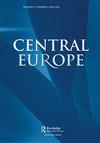Planning an Uprising; Remaking a Nation: The Polish Radicals’ Debates on the Army and War in 1832-1846 Revisited
IF 0.1
2区 历史学
Q2 HISTORY
引用次数: 1
Abstract
ABSTRACT The primary aim of this article is to investigate the debates among those radicals who found themselves in exile after the failure of the Polish November Uprising (1830–1831) about whether a new national war was necessary. Instead of dealing with their reflections on warfare, I focus on the political dimension of these debates, and in particular on their ideas about mobilization during wartime. The first part of the article sketches out the general context of these reflections, stressing the deep roots of the debates about ‘citizen-soldiers’ and mass military mobilization. The second part examines the Polish radicals’ sometimes contentious debates during the 1830s, which focused on the reasons for the failure of the November Uprising, the lessons that needed to be learned, and the means by which the peasantry could be included into both military ranks and the political sphere. The principal forum for these discussions was leaflets and articles. The third part concentrates on their disputes during the 1840s. This decade was marked by the particular intensity of these polemics as the radicals confronted, amongst other issues, the question of revolutionary terrorism and mass democracy during the (supposedly impending) war. The article concludes by recapitulating the main features of these debates, and clarifies that there was only a bare thread of continuity between the radicals from the 1830s and 1840s and those who mulled over similar issues in the second part of the 19th century.策划起义;重塑一个国家:1832-1846年波兰激进派关于军队和战争的辩论
本文的主要目的是研究波兰十一月起义(1830-1831)失败后流亡海外的激进分子之间关于是否有必要发动一场新的民族战争的争论。我不讨论他们对战争的思考,而是关注这些辩论的政治层面,尤其是他们对战时动员的看法。文章的第一部分概述了这些反思的总体背景,强调了关于“公民士兵”和大规模军事动员的辩论的深刻根源。第二部分考察了波兰激进派在19世纪30年代有时颇具争议的辩论,主要集中在11月起义失败的原因、需要吸取的教训,以及农民可以被纳入军队和政治领域的方法。这些讨论的主要论坛是传单和文章。第三部分集中于19世纪40年代他们之间的争论。这十年的特点是这些争论的特别激烈,因为激进派在其他问题中面临革命恐怖主义和(据称即将到来的)战争期间的大众民主问题。文章最后总结了这些辩论的主要特点,并澄清了19世纪30年代和40年代的激进分子与19世纪下半叶思考类似问题的人之间只有一丝连贯性。
本文章由计算机程序翻译,如有差异,请以英文原文为准。
求助全文
约1分钟内获得全文
求助全文
来源期刊

Central Europe
HISTORY-
CiteScore
0.20
自引率
0.00%
发文量
7
期刊介绍:
Central Europe publishes original research articles on the history, languages, literature, political culture, music, arts and society of those lands once part of the Habsburg Monarchy and Poland-Lithuania from the Middle Ages to the present. It also publishes discussion papers, marginalia, book, archive, exhibition, music and film reviews. Central Europe has been established as a refereed journal to foster the worldwide study of the area and to provide a forum for the academic discussion of Central European life and institutions. From time to time an issue will be devoted to a particular theme, based on a selection of papers presented at an international conference or seminar series.
 求助内容:
求助内容: 应助结果提醒方式:
应助结果提醒方式:


